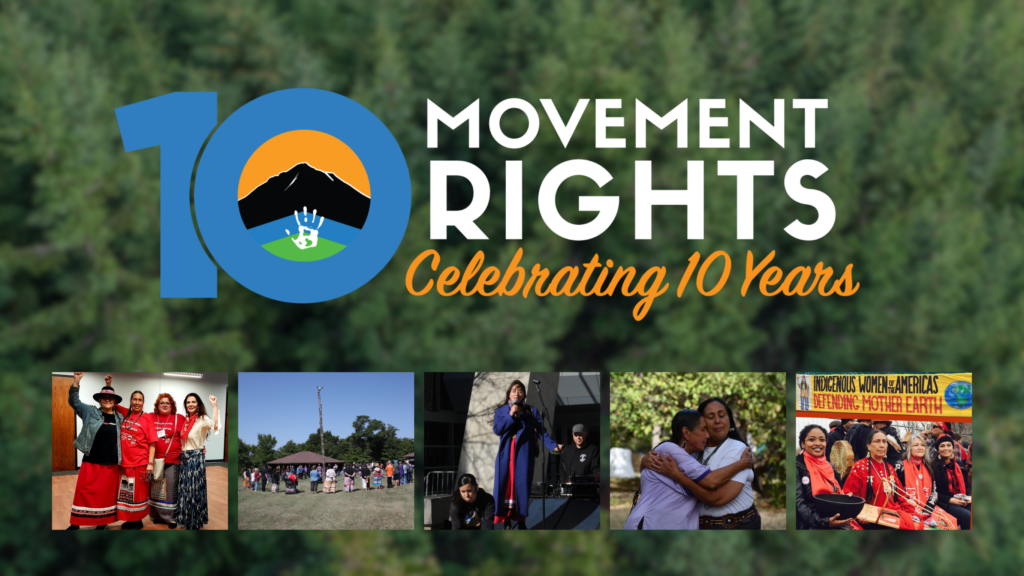- By Shannon Biggs and Pennie Opal Plant, Movement Rights’ Co-founders
Our Humble Beginnings Around a Kitchen Table
It was just two women, Shannon Biggs and Pennie Opal Plant, both lifelong activists, talking in a kitchen in 2014 about how to move the Rights of Mother Earth forward. Just a decade ago, the Rights of Nature/Mother Earth was either unknown, or considered a crazy legal idea. Back then, we were among only a handful of people in the US that could articulate it. We began pondering how our experience and skills could come together to build movement momentum. We had already been working together informally for years confronting corporate power, and providing community workshops on the Rights of Nature and Indigenous Cosmology.

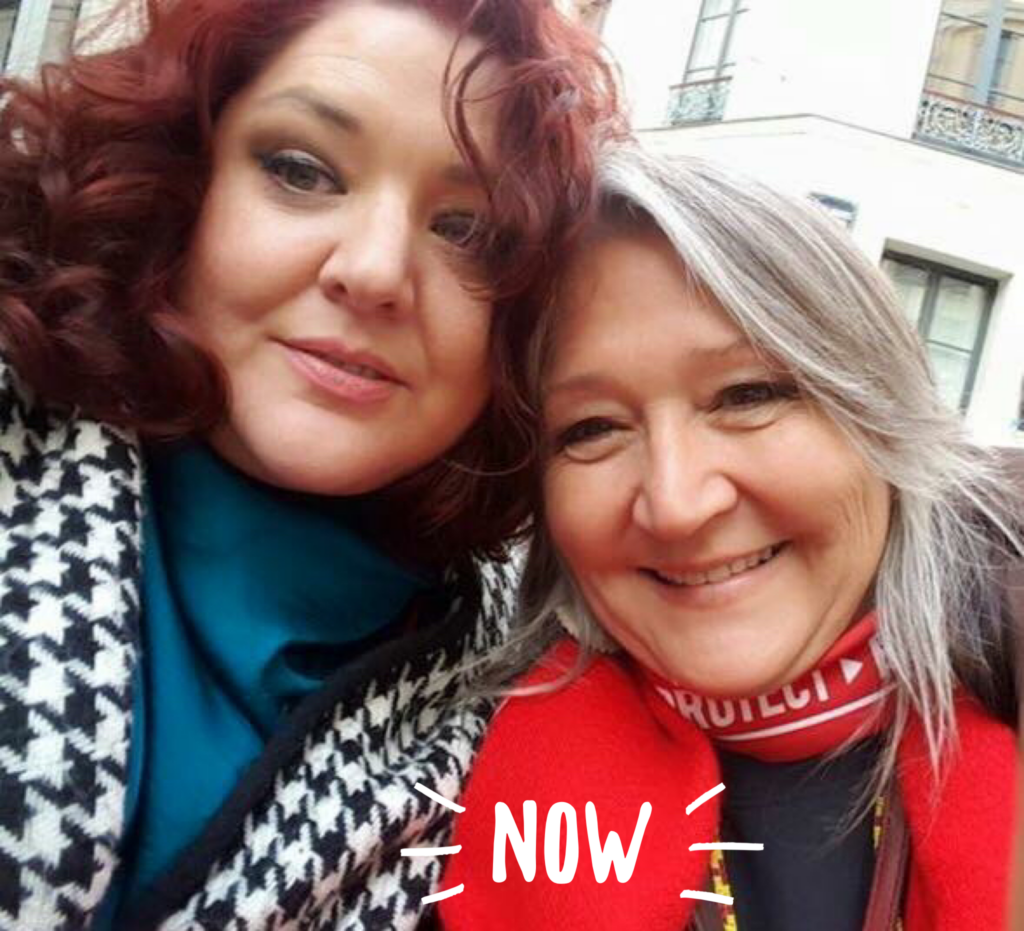
Shannon had already worked with global activists to co-create a powerful network, the Global Alliance for the Rights of Nature (GARN). In 2010 during the historic World People’s Summit on Climate Change and the Rights of Mother Earth in Bolivia, she was honored to host the President’s panel on the Rights of Nature. At the Summit, attended by 36,000 people from 140 countries, the Universal Declaration on the Rights of Mother Earth was written by thousands of attendees, most of them Indigenous. She brought a wealth of information about the Rights of Nature, empire, and globalization.
Growing up in the shadow of the Richmond, CA Chevron refinery, Pennie had been a frontline protector and defender of the sacred system of life since the early 1980s working on nuclear issues. A fearless Indigenous activist and community leader, Pennie formed Idle No More SF Bay with a group of Indigenous grandmothers and created a NVDA training program, the Society of Fearless Grandmothers.
We Launched Movement Rights Because We Saw the Need
We saw the need to organize from fearless love of everything we hold dear—to go beyond policy as usual, intellectual rigor, or reasonable expectations for what is possible. From the beginning, we saw Movement RIghts as a small collective of seasoned women leaders who deeply respect each other. Rather than strive to grow our staff numbers or our “name”, we focus on elevating resources and expertise in tribal communities. Staying smaller means we remain nimble and can make fast decisions when the moment calls for it. During the pandemic we quickly created an online community of love and sharing. We created interactive webinars such as Beyond Isolation: Reconnecting with Indigenous Wisdom & Women and immediately worked with partners to raise funds and provide tribes with PPE masks and equipment.
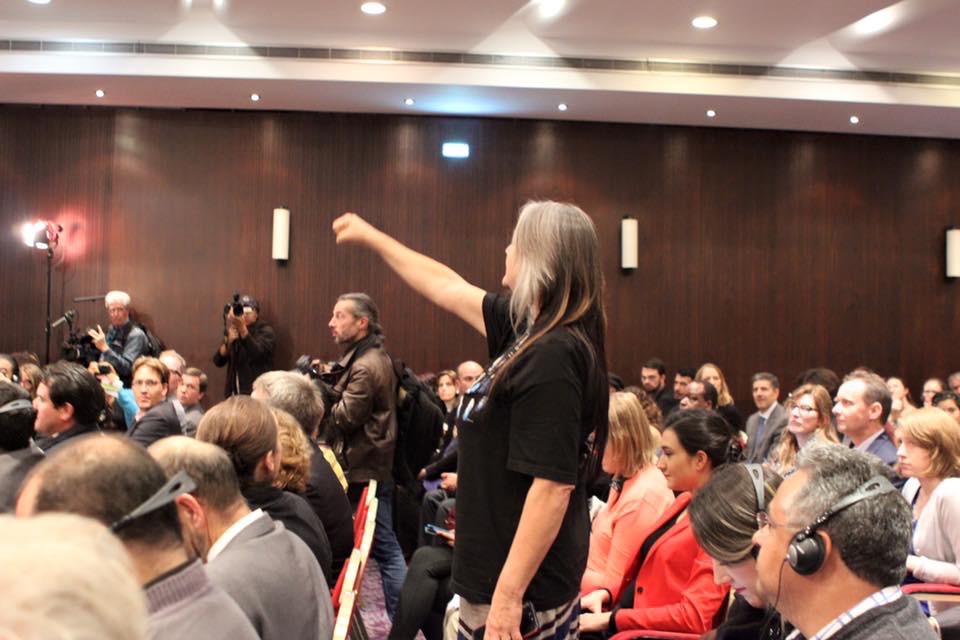
We saw the need to change the face of Rights of Nature to represent not just a legal tool to confront property rights, but a total cultural shift rooted in Indigenous cosmology of living in balance with the system of life. We saw Indigenous Original Instructions as foundational for the system change we believed the Rights of Nature could be. From assisting the Ponca Nation to become the first tribe to recognize Rights of Nature and Climate in the US; supporting the creation of the Indigenous Council of GARN; leading fact-finding Indigenous delegations in Aotearoa; working to with with TIPNIS tribal communities in Bolivia; to global and local tribunals and more, we are proud to be at the tip of the spear of change on Turtle Island and globally. Today the Rights of Nature is the fastest growing environmental movement in the world, and it’s Indigenous-led.
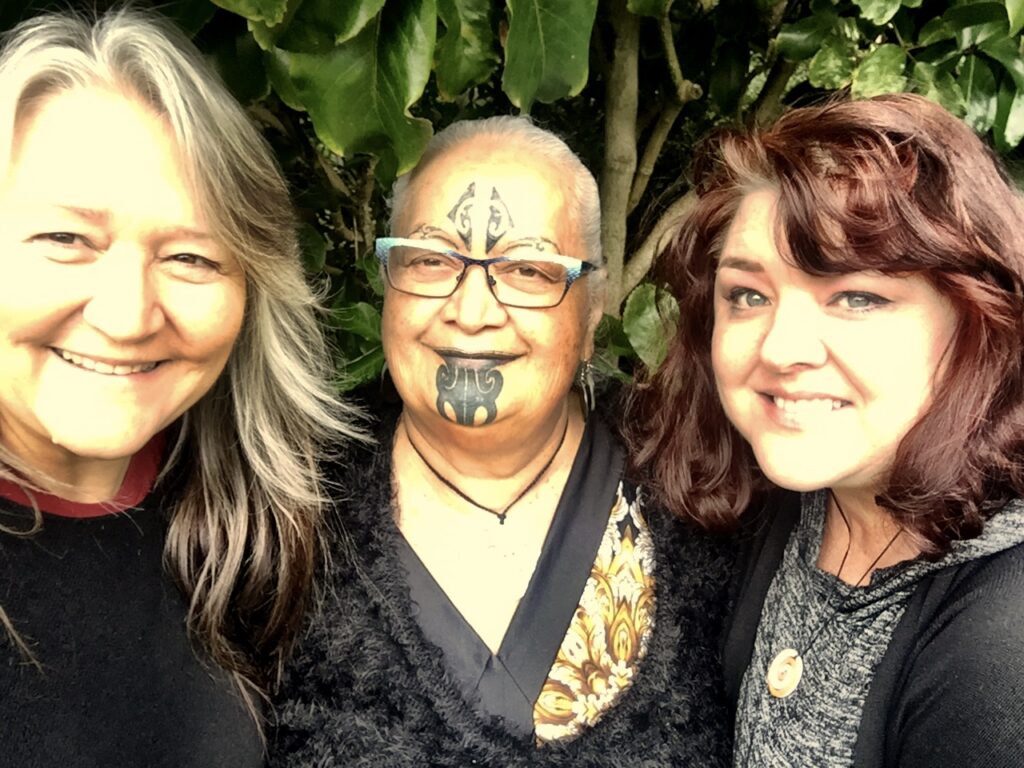
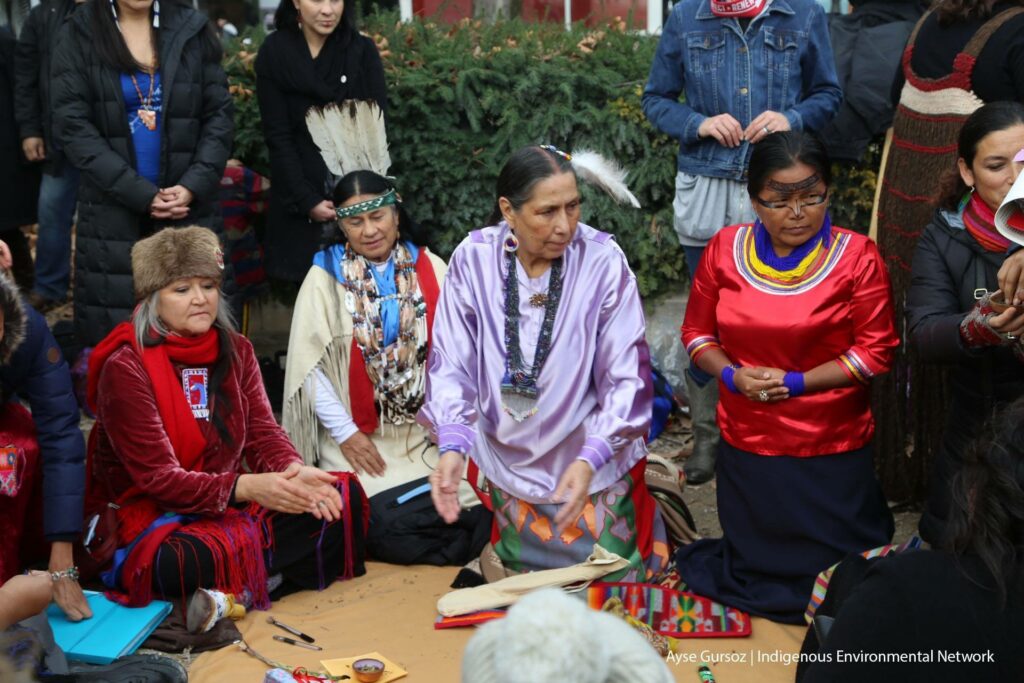
We saw the need to support the frontlines of climate disruption and fossil fuels differently, that was neither “parachuting in” or bringing a cookie cutter approach. To us, this means working deeply where needed, and leaving the expertise in the communities in which we are invited to work. We respect the unique experiences, and gifts of the communities we partner with and focus on enabling them to lead. That also means our organizing, legal and practical support looks different wherever we go.
We saw the need to connect climate/water/environmental justice movements globally and locally for strength, power, and creativity to collectively imagine and create a safe, sustainable, healthy world. Movement Rights’ success is centered on the reality that we have so much to learn from sharing our collective strategies.
We saw the need to elevate the voices of Indigenous Women. Indigenous women around the world have assumed the responsibility of ensuring a safe and healthy future for all of the babies—including non-human babies. It was Indigenous women who inspired the KXL, DAPL, and Line 3 camps against fossil fuel pipelines. Internationally from Canada to Africa to the Amazon women are the first to put their bodies on the line for Mother Earth. Often Indigenous women have ancient relationships with and responsibilities to the Waters. We are proud of the work of the Pa’tha’ta Women’s Society of the Ponca Nation in passing the Immutable Rights of Rivers.
Looking back on a decade of Movement Rights, it’s amazing what this small but mighty team of women has accomplished!
Movement Rights by the Numbers
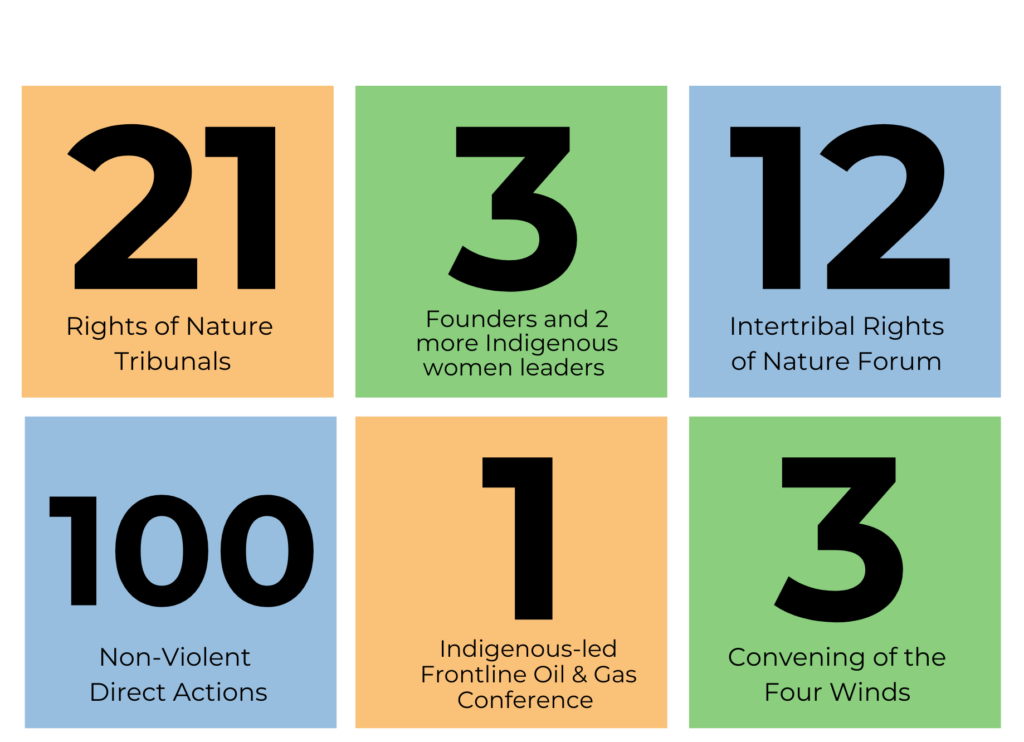
- Enter founder #3: Casey Camp Horinek of the Ponca Nation. In 2015 Casey joined Movement Rights as our founding board chair and the third co-founder at our kitchen table. Owing to fracking and fossil fuel activity, Oklahoma and the Ponca Nation was considered a “sacrifice zone,” where philanthropy and NGO’s hesitated to go. Today Casey is a global Ambassador for the Indigenous-led Rights of Nature movement. A brilliant strategist, speaker, writer, water protector and warrior, she is part of Movement Rights’ Indigenous and women leadership on climate, confronting false solutions and Indigenous solutions.
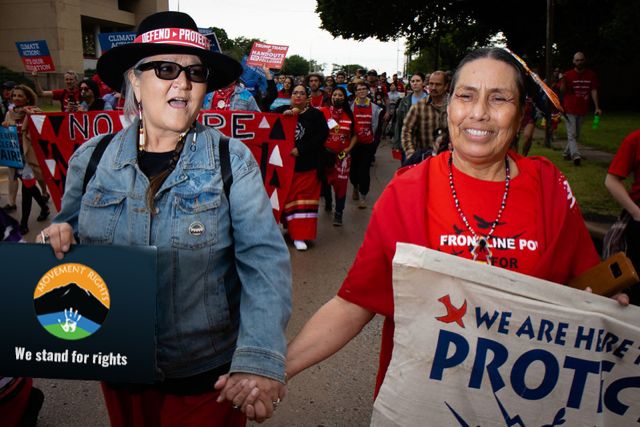
- 21 Rights of Nature Tribunals: Movement Rights was involved in the formation of the International Rights of Nature Tribunals which have become increasingly visible and important on the global stage, showcasing how human laws can be shifted to be in balance with the laws of Mother Earth. To date there have been 6 international tribunals (in 6 countries on 4 continents), 2 regional and 13 local tribunals (also on 4 continents). Co-founder Shannon Biggs presented the case against fracking at the first International Tribunal in Quito, Ecuador in 2014, and has served as a judge. All of Movement Rights’ team have participated in numerous tribunals, and co-led 2 local tribunals in California (2015) where co-founder Pennie Opal Plant was a judge, and co-sponsored the Yesah Tribunal in North Carolina (2024) where Casey Camp Horinek was a judge.
- 12 Intertribal Rights of Nature (IRON) Forums: Movement Rights created these gatherings to provide an opportunity for Native people to privately and critically discuss the legal and organizing framework of Rights of Nature from an Indigenous perspective, the relationship between rights and responsibilities, and to discuss strategic opportunities for protecting tribal lands. Now law in over 20 tribes, IRON forums have encouraged more than 100 Indigenous people to explore Rights of Nature and strengthen tribal sovereignty.
- 200 frontline defenders at 1 Frontline Oil & Gas (FOG) Conference: In 2018 Casey and Movement Rights brought the idea of an Indigenous-led FOG strategy-building gathering to the climate justice movement. Officially hosted by the Ponca nation, it centered on community-building for power, rooted in the Ponca’s own story of environmental genocide, and their resilience and leadership in defending Mother Earth. More than just a conference it was designed by and for Indigenous and POC frontline defenders, including ceremony, traditional dancing, a youth track, an MMIW action, and uniquely developed collaborative sessions. During the FOG conference a statewide MMIW campaign launched and our Indigenous Alaskan friends created the frontline organization, SILA, among many outcomes. View photos here.
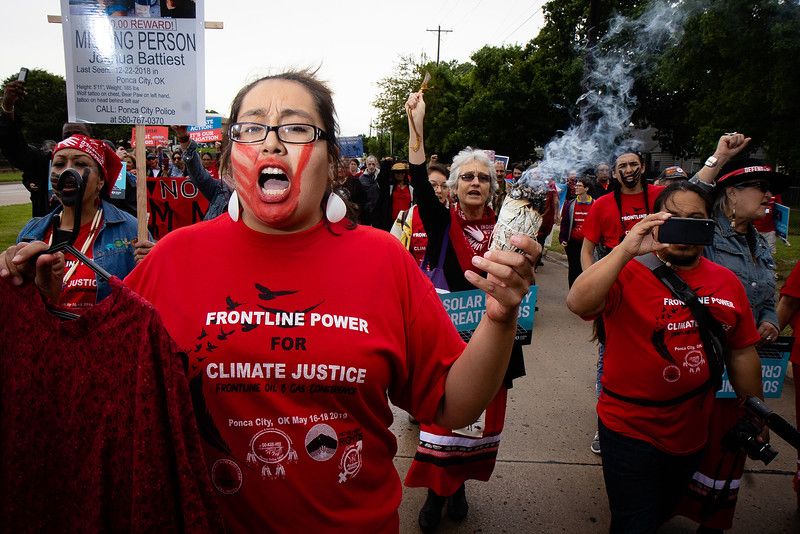
- Hundreds of Non-Violent Disruptions: From small actions to mass civil disobedience, NVDA means upsetting business as usual, sometimes risking arrest, and always speaking truth to power. Whether we’re dropping banners, getting arrested at the White House, blocking fossil fuel delegates from entering an international conference, or causing a commotion at a regulatory hearing Movement Rights is not afraid to stand with the frontlines in defense of Mother Earth.
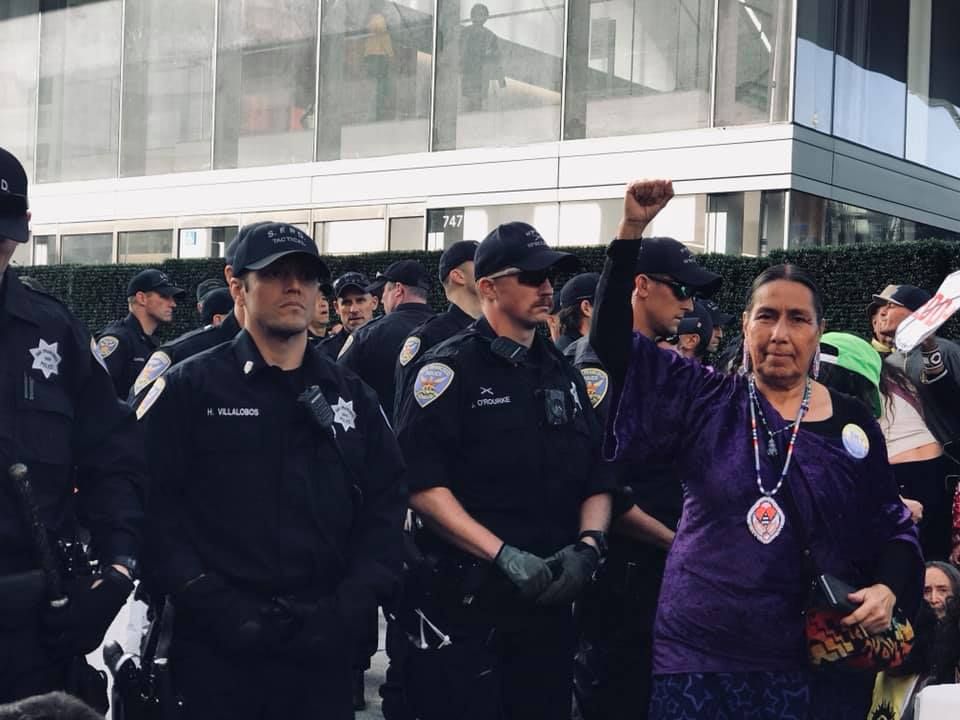
- 3 Convenings of the 4 Winds: As our organizing in Ponca Nation grew, it became clear that there was a need to bring together Indigenous communities across Oklahoma and the Plains to protect the waters and confront fossil fuel destruction. A series of 4 events that bring together Indigenous leaders, community members, and activists to share solutions to the climate crisis specific to their communities. In 2022 the first Convening was held in Ponca territory, followed by Cherokee territory, and Chahta and Mvskoke hosts invited us to support the third event. The final Convening will be held in Nebraska in 2025, followed by an Intertribal Strategy meeting looking to develop a Plains-wide coalition. More than 400 have participated.
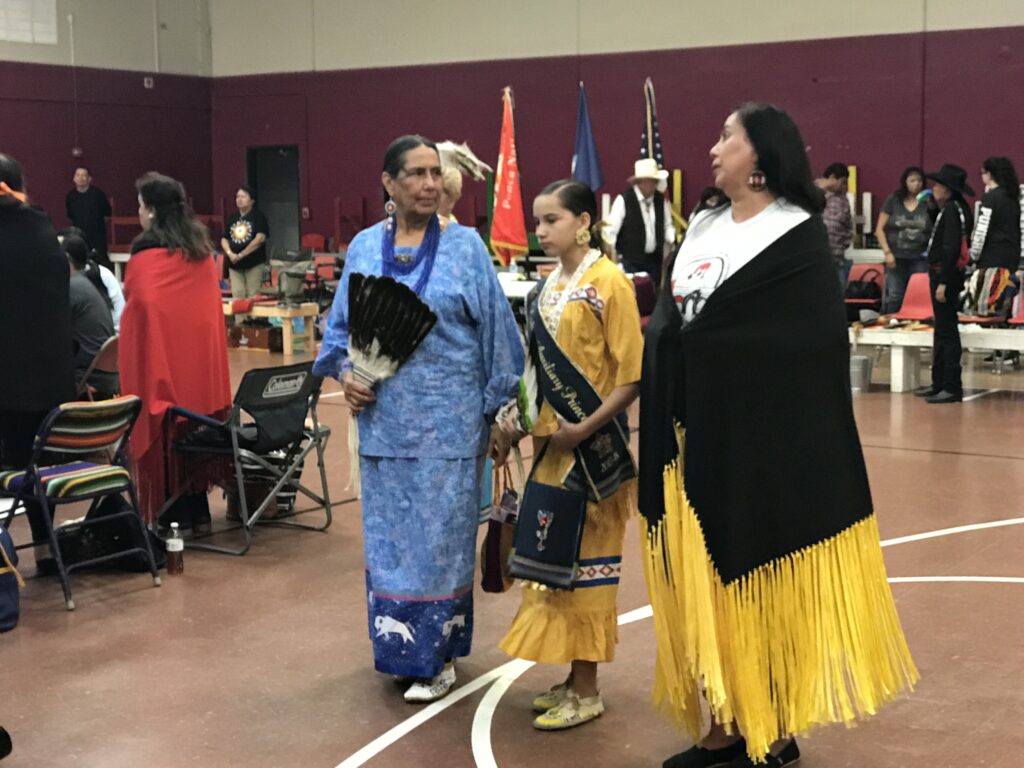
- 2 More Indigenous Women Leaders to our Kitchen Table: With the addition of Isabella Zizi in California as a National Organizer in 2022, and Julia Horinek in Oklahoma as our Plains Coordinator in 2023 our team of visionary women with a lifetime of work for Mother Earth has only deepened. We are so grateful. Read about them here.
Chronological List of Action & Success
2014-2016
- Dec 1, 2014: Launched Movement Rights!
- 2014: First International Rights of Nature Tribunal ever in Peru. Movement Rights’ co-founder Shannon Biggs led the case against fracking including Casey Camp Horinek as a case presenter and Board member Tom Goldtooth as a judge.
- 2015: Movement Rights was on the ground (and presenting at the standing Room Only tribunal) for the Paris COP 21 Climate Talks, and produced a critical international report on Rights of Nature. Movement Rights’ co-founders also called out CA Governor Jerry Brown for his fossil fuel failures and carbon trading on the international stage.
- 2015: Historic Indigenous Women’s Treaty including Pennie Opal Plant and Casey Camp Horinek calls for Action for Mother Earth.
- 2016: First presentation to Ponca Tribal Council seeking to pass Rights of Nature into law.
- 2016: Local Tribunal What would the Delta Say? Movement Rights and partners in the Bay Area hold the first local Rights of Nature tribunal in California, focussed on the “Twin Tunnels” that proposed to drain water from the fragile and critical Bay Area Delta and route to Los Angeles.

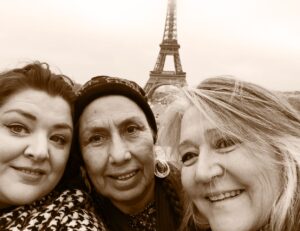
2017-2019
- 2017: Movement Rights co-produced the report, Rights of Nature: Rights-Based Law for Systemic Change as part of our activities in Bonn, Germany for the UN Climate negotiations.
- 2017: After many community events, IRON forums and tribal meetings, the Ponca Business Council votes to pass a statute recognizing the Rights of Nature on October 20.
- 2018: (watch!) The Ponca Tribe Makes History! Movement Rights assists Casey and the Ponca nation to draft and pass the first rights of nature law on tribal land in the U.S.
- 2018: Conducted a 10-day Indigenous learning delegation from Turtle Island to Aotearoa to learn from the Maori people how they recognized the legal spiritual rights of their ancestral mountains and rivers;
- 2018: After a year of national ally organizing, Movement Rights took to the streets with thousands of people to shut down the Global Climate Action Summit (GCAS), the largest climate contingent to come to San Francisco for a week of mobilization and 55 street murals painted in downtown SF promoting real climate solutions.
- 2019: Co-coordinated a 3-day global Rights of Nature Symposium and strategy session in Quito, Ecuador as part of the Global Alliance for the Rights of Nature;
- 2019: Movement Rights was invited to Bolivian forest region of TIPNIS Isiboro Sécure National Park and Indigenous Territory). Shannon Biggs was part of a high-level 3-person international Commission to investigate government crimes against the Rights of Nature in Indigenou territory.
- Over 200 International media outlets followed our front-page TIPNIS news journey which included the Commission being held hostage by Cocaleros for 7 hours. Watch: video of the delegation and the TIPNIS plight
- 2019: TIPNIS Commission presents findings at an international press conference that the Bolivian government has violated their own Rights of Nature laws. Press Conference video and PDF here.
- A video documenting our work in 2018-2019 here.
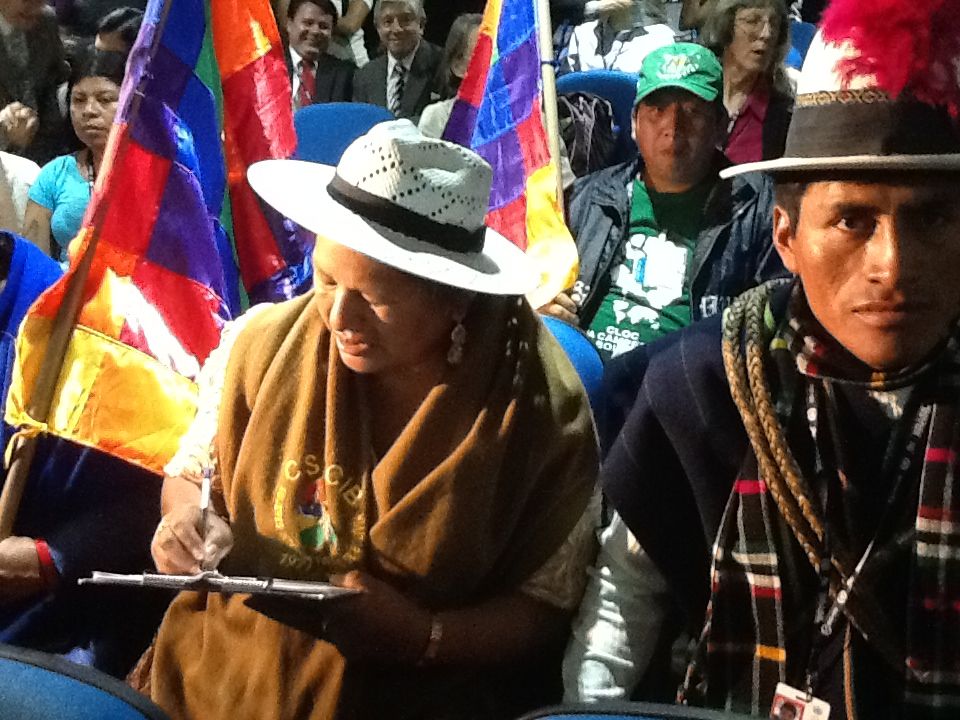
2020-2023
- Quickly shifting our organizing to meet the early Pandemic moment. We worked with parnters to raise funds and distribute lifesaving COVID supplies to underserved tribal communities through the Mutual Aid project Protect the people’s emergency partnership fund
- Our COVID-era organizing focused on bring people together in a time of isolation. Interactive webinars connected thousands of people in conversation, Indigenous wisdom and prayer including Beyond Isolation: Reconnecting with Indigenous Wisdom & Women; and The Rights of Nature & Land Back: Indigenous-led Movements for the Protection of Mother Earth; and many others available on
- May 9, 2021 ON THE GROUND AGAIN! The Pa’thata held their first Rights of the Rivers ceremony at the Ponca powwow grounds sponsored by Movement Rights
- Oct 2021 People VS Fossil Fuels: the Climate Justice Movement Went to DC. Hundreds of us were arrested during a week of action.
- Nov 2021: 5th International Rights of Nature Tribunal – Glasgow COP 26
- Calling out so-called “Nature Based Solutions” & Climate Chaos Profiteers – Chapter written by Pennie Opal Plant in Required Reading. (Listen here:
-
July 2022: Ponca make history again passing the Immutable Rights of Rivers
- Nov 2022: Report released at Egypt COP 27 Rights of Nature: Redefining Global Climate Solutions & Environmental Protection for Systemic Change
- Sept 2022 The 1st Convening of the 4 Winds held in Ponca
- Nov 2022 passing of Joye Braun, hundreds mobilized for Jan 20, 2023 “Joye Braun Day of Action”
- Banking on a Safe World: Divesting from Nuclear Weapons and Fossil Fuels
- December 2022: Supporting Indigenous partners at 7 Directions of Service to recognize the Rights of the Haw River (NC)
- April 2023: 2nd Convening of the 4 Winds held in Cherokee, OK
- 2023: Rights of Nature Cohort Series with tribes in the PNW with our partners the Na’ah Illahee Fund.
- Sept 2023: We were part of the organizing committee through PVFF that brought 75,000 people to the March to End the Fossil Fuels
- 2023: Movement Rights proudly partners with LUSH on the (many) award-winning documentary short Water Has a Memory about Casey Camp, the Ponca and the Rights of Nature.

2024
- March 2024: Isabella Zizi provides training and experience for the Earth Guardians Indigenous Youth Initiative (IYI)
- June 2024: With 7DS and other partners we co-organize The Yesah Tribunal – First ever Indigenous-led tribunal on the Rights of Nature and the Mountain Valley Pipeline
- Sept 2024: The 3rd Convening of the 4 Winds is held in Mvskoke territory Oklahoma. Watch video here!
- Sept 2024: We were on the ground in New York for Climate Week! Casey and Shannon served as judges and Julia Horinek was a presenter at the 6th International Rights of Nature Tribunal: End the Era of Fossil Fuels and spoke at many events throughout the week, and attended the first in-person meeting of the GARN Indigenous Council.
- October 2024: Indigenous Women Lead at United Nations COP16 Biodiversity Convention in Colombia including GARN delegates Casey Camp and Julia Horinek. Watch 20 second video here.
- November 2024: Isabella Zizi is honored at San Francisco City Hall as an Indigenous Bay Area Leader.
Special Acknowledgements: We could not have made this journey without the help of hundreds of special friends and caring people who believed in us. We can’t thank you ALL here, but a few volunteered their deep support to help us get off the ground from the beginning including Anuradha Mittal and the Oakland Institute, Cabot Davis, Carleen Pickard, Barbara Ford, Fred Ch., Michael Horse, Shane Gildea, Kirsten Moller and Global Exchange, Marsha Moutrie, our talented designer Katie Nehls, and our amazing Indigenous Board of Advisors. Thank you beyond words.
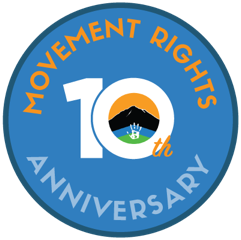 Support Movement Rights
Support Movement Rights
We have a lot of work to do in 2025 and beyond. Please make a gift of support today. We thank you.

